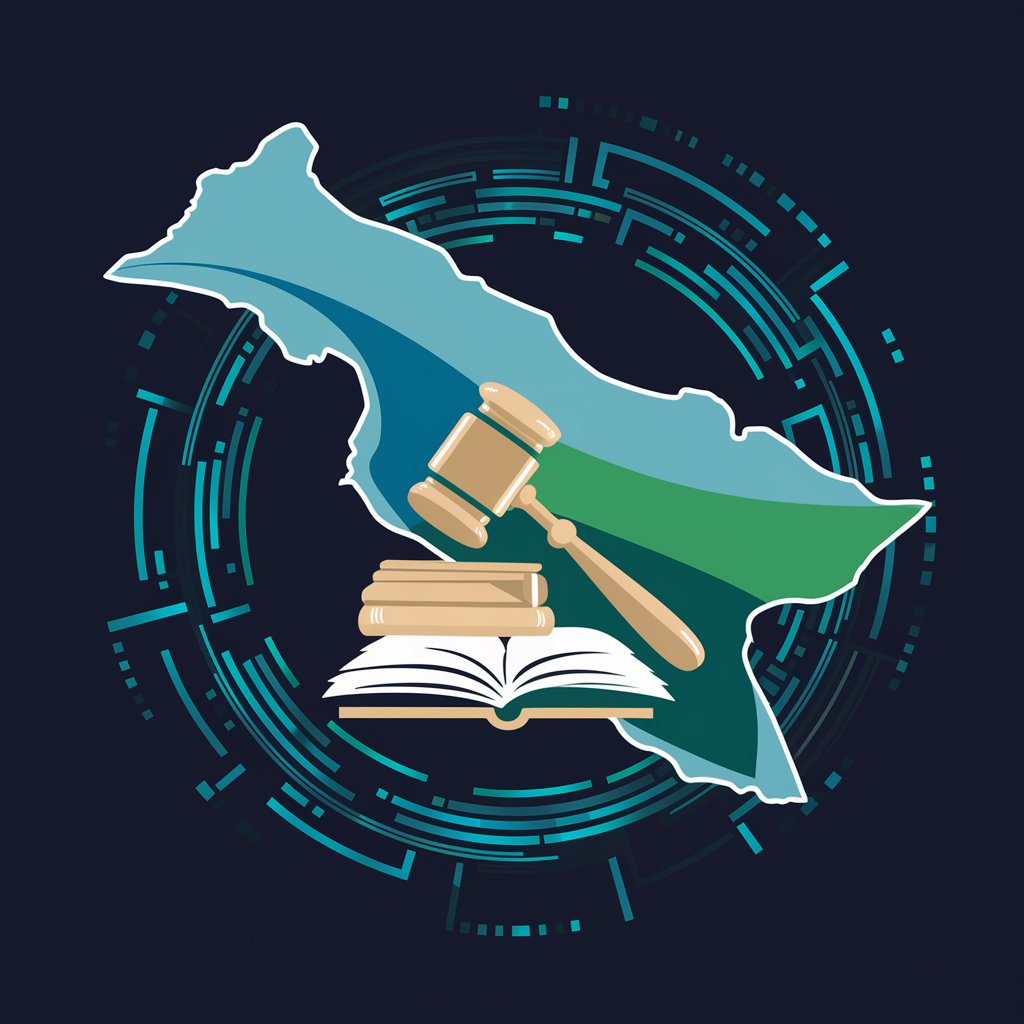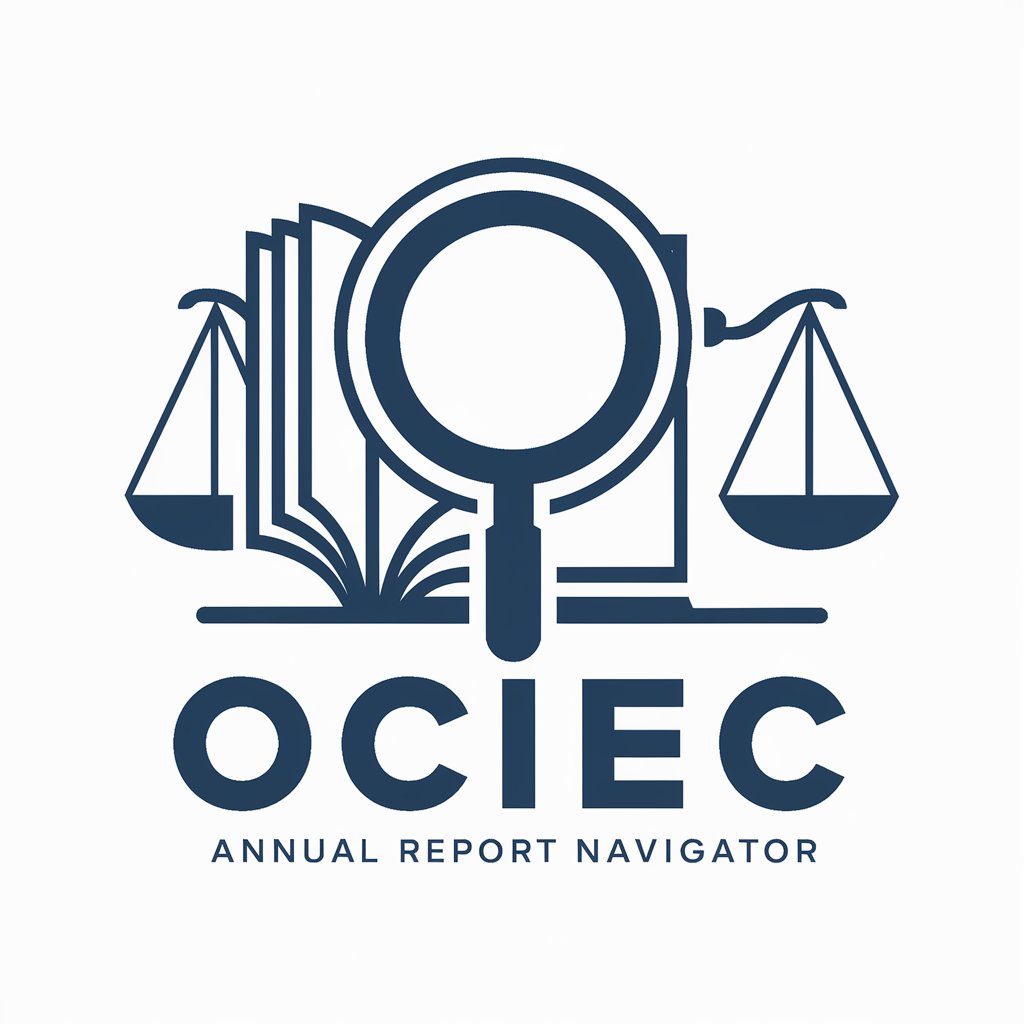5 GPTs for Legislative Compliance Powered by AI for Free of 2025
AI GPTs for Legislative Compliance are advanced artificial intelligence tools designed to assist in understanding, navigating, and adhering to complex legislative and regulatory frameworks. Utilizing Generative Pre-trained Transformers (GPTs), these tools offer bespoke solutions for analyzing legal documents, tracking regulatory changes, ensuring compliance, and providing legal insights. Their role is pivotal in simplifying the vast and intricate domain of legal regulations, making compliance more accessible and manageable for organizations and professionals.
Top 5 GPTs for Legislative Compliance are: Consultor em Agronegócios (versão beta),ClimateLawPal,ECSECC-Group1,OCIEC 2022-2023 Annual Report (Act) Navigator,Food Ingredient Educator
Consultor em Agronegócios (versão beta)
Empowering agriculture with AI insights

ClimateLawPal
Navigating EU Climate Law with AI

ECSECC-Group1
Empowering ECSECC Decisions with AI-Powered Policy Insights

OCIEC 2022-2023 Annual Report (Act) Navigator
AI-powered insights into ethics compliance

Food Ingredient Educator
Unlocking the secrets of ingredient safety with AI.

Key Capabilities of Legislative AI Tools
These GPTs tools stand out for their adaptability across various legislative compliance tasks, ranging from basic legal inquiries to in-depth regulatory analysis. Key features include natural language processing for understanding legal jargon, machine learning for staying updated with the latest laws and regulations, and tailored responses to specific legal scenarios. Special features may encompass technical support, comprehensive web searching abilities, image creation for illustrative purposes, and data analysis capabilities for predictive compliance insights.
Who Benefits from Compliance AI?
AI GPTs for Legislative Compliance are invaluable to a broad audience, including legal professionals, corporate compliance officers, developers creating compliance-focused applications, and novices seeking legal information. They are designed to be accessible to users without technical backgrounds, offering intuitive interfaces and guidance, while also providing advanced customization options for tech-savvy individuals or developers needing to integrate AI into specialized applications.
Try Our other AI GPTs tools for Free
Emissions Management
Discover how AI GPT tools for Emissions Management are transforming sustainability efforts with real-time data analysis, predictive insights, and tailored reduction strategies.
Rental Insights
Discover how AI GPTs for Rental Insights are transforming the rental industry with advanced data analysis, trend forecasting, and personalized market insights.
Budget Housing
Discover how AI GPTs for Budget Housing revolutionize affordable living, offering tailored insights and solutions to navigate the housing market efficiently.
Luxury Rentals
Discover the transformative power of AI GPTs in the Luxury Rentals sector, enhancing operations, customer service, and market insight with cutting-edge technology.
Mechanic Development
Discover how AI GPTs are revolutionizing Mechanic Development, offering adaptable, efficient solutions for design, maintenance, and innovation. Ideal for professionals and novices alike.
Wellness Customization
Discover how AI GPTs are revolutionizing wellness with personalized solutions. Tailored advice, seamless app integration, and user-friendly interfaces bring your health goals within reach.
Expanding the Horizon with AI in Compliance
AI GPTs for Legislative Compliance exemplify the potential of AI in transforming traditional sectors. They offer not just a user-friendly interface but also the possibility of seamless integration into existing legal and regulatory workflows. By automating routine compliance tasks, these tools allow professionals to focus on more strategic aspects of their work, significantly enhancing productivity and reducing the risk of non-compliance.
Frequently Asked Questions
What exactly are AI GPTs for Legislative Compliance?
They are AI tools using GPT technology tailored to assist with legal and regulatory compliance, capable of analyzing and interpreting legislation to provide actionable insights.
How can these tools adapt to different legal systems?
Through machine learning and continuous updates, they can adapt to various jurisdictions and legal systems by learning from a wide range of legal documents and regulatory updates.
Are these tools suitable for non-experts in law?
Yes, they are designed with user-friendly interfaces that guide users through legal processes and provide explanations in simple language, making them accessible to non-experts.
Can developers integrate these AI tools into existing systems?
Absolutely. Developers can leverage APIs and other integration tools to embed these GPTs into existing legal or compliance software systems, enhancing their capabilities.
How do these tools stay up-to-date with new laws?
They utilize continuous learning algorithms to ingest new legal documents, updates, and regulatory announcements, ensuring the information they provide remains current.
Can these AI tools help with global compliance?
Yes, they are capable of handling regulations from multiple jurisdictions, making them suitable for organizations operating internationally.
Do AI GPTs for Legislative Compliance replace legal professionals?
No, they serve as a tool to assist and enhance the work of legal professionals, not replace them. They provide quick access to information and preliminary analysis, which can then be further reviewed by legal experts.
What sets these AI tools apart from traditional legal research methods?
Their ability to process vast amounts of legal text rapidly, understand context, and generate user-specific responses makes them more efficient than traditional research methods, which are often time-consuming and less adaptable.